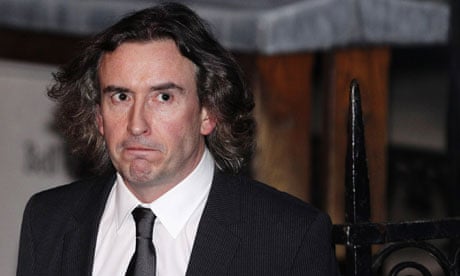The report is good enough. Lord Justice Leveson has produced a fair and non-Draconian set of recommendations that simply cannot be knocked back into the middle. The acknowledgement of politicians' cosy relationship with certain sections of the press, and of the press's cosy relations with the Metropolitan police, is welcome. So, too, is his assertion that certain members of the public have been understood as "fair game, public property, with little if any entitlement to any sort of private life ...". But the key is the fair and intelligent recommendation that future self-regulation must be underpinned by law.
Let's not forget it was the prime minister who called for the inquiry in the first place, and that it was he who said that, unless the recommendations produced were "bonkers", they would be acted on. But now David Cameron is playing a despicable political game: disingenuous at best, bare-faced lying at worst. By rejecting Leveson's call for statutory regulation, Cameron has hung the victims of crime out to dry. He has passed on the opportunity to make history. He has revealed there isn't an ounce of substance in his body, that he has one eye on courting the press for elections in years to come, and doesn't know the meaning of conviction. Quite simply, if future regulation is not backed by statute, Leveson's report is nothing more than a large slap on the wrist. But this is a price Cameron is prepared to pay, because it is not the victims of crime who will get him re-elected.
This, of course, is history repeating itself. In 1990 the Calcutt report received similar treatment. Rupert Murdoch begged for one last chance before tougher regulation was bought in, and – despite the home office minister at the time, David Mellor, calling this the "last chance saloon" for the British press – the press was let off scot free.
What Cameron fails to realise is that he is making a political mistake. Recent polling (unsurprisingly unreported by most of the press) shows that 77% of the public want an independent regulator with real teeth backed by law , and that most people do not trust the press.
Cameron is mirroring the derision and disrespect shown for the inquiry by the rightwing press. Most of them did a decent enough job of covering it up, but Kelvin MacKenzie, to his credit, came clean when he told Leveson: "Basically, my view was that if it sounded right it was probably right, and therefore we should lob it in." This is the abusive behaviour that Leveson was set up to look into. This is the abusive behaviour, this "lobbing it in", that led to Liverpool fans being accused of pickpocketing dead bodies during the Hillsborough disaster. This is the abusive behaviour that regulation with bite could prevent.
Ironically, it's people like MacKenzie who are holding up the torch of "freedom of the press" to serve their cause. The truth is, this model of journalism is about selling newspapers. It is a business not a torch of freedom. I spent two weeks deciding whether to involve myself in Hacked Off, the campaign for a free and accountable press. I was reluctant: I had nothing to gain from it personally and I'm not a masochist.
But it was two images that changed my mind. The first was of Andy Coulson sitting in Downing Street dressed in a dinner jacket trying to look like the picture of respectability. The second was that of Daily Mail editor Paul Dacre. He is the embodiment of Fleet Street bullying, using his newspaper to peddle his Little-England, curtain-twitching Alan Partridgesque view of the world, which manages to combine sanctimonious, pompous moralising and prurient, voyeuristic, judgmental obsession, like a Victorian father masturbating secretly in his bedroom. This is the side of the press Cameron has sided with.
